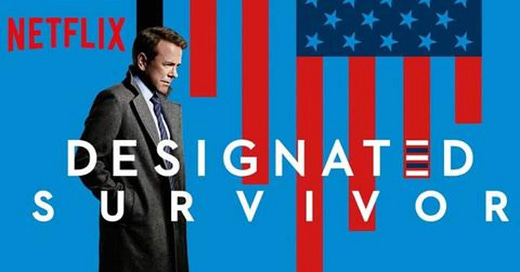Had he not been assassinated by the latest in a never-ending series of unbelievable individuals we seem to meet every day now, Brian Thompson’s life would be defined by his role as the CEO of UnitedHealthcare.
Coverage of his funeral dedicates nearly as much space to his life as it does UHC's enrichment and Johnson's compensation in the face of lawsuits, congressional blowback and general enmity for its poor service. Local politicians responded to his death with what I could only describe as boilerplate condolences. Tim Walz called Johnson's death "a terrible loss for the business and health care community in Minnesota" which feels like shade.
Brian Thompson was born in Ames, Iowa, studied business administration and accounting at University of Iowa, then worked in management ever since. He started at accounting mega-firm PriceWaterhouseCoopers, then jumped to UnitedHealth Group in 2017. He had a wife and two sons, and Wikipedia says he and his wife were living separately as of the time of his death. Wikipedia also mentions that he “visited Ireland on several occasions” but only because “UnitedHealthcare's sister company Optum has operations in the country,” which makes me a little sad.
It's notable that I have not seen a single word about how UnitedHealthcare will replace Thompson as CEO. He was the head of a company that is one of the cornerstones of American health care, an apparently gifted businessman whose colleagues described him as an “incredibly talented guy and a very practical leader” and “the smartest guy in the room, without being annoying”. This combination of professional acumen and personal touch had to have been special and unique to land him at the top of the ladder. What will UHC do without his guidance?
More to the point, Thompson’s compensation was over $10 million a year. This is an extraordinary amount of money, a sum that basic economics implies you should only give to someone with an absolutely essential role in the daily operations of the company. It would follow that his sudden absence would be disruptive, to say the least, and filling this position would be an emergency. I am not so insensitive as to expect them to name his successor so soon, but there had to be a contingency plan. Right?
Hitmen as represented in popular culture basically don’t exist — if you think you’ve found one, you are almost certainly being entrapped — but the professional sheen of the hit seemed to imply … something? Given Thompson’s antimemetic persona, it felt reasonable to assume some kind of scandal would shake out. Billions in gambling debt? Insider trading gone horribly wrong? Honestly, nothing really fits, but the alternative, that someone got so fed up with the insurance industry that they decided to murk a CEO, felt equally unbelievable.
The hitman in question, Luigi Mangione, has given us gawkers a bumper crop of ~content~. His name alone is silly, the set-up for hundreds of jokes about both The Mafia and MarioKart. He turned out to be a beautiful man with washboard abs and bountiful brows, of whom we have gotten a frankly confusing number of mug shots. He left a very intentional trail, from writing on his shell casings, to the many 286's in his metadata, to a YouTube video whose release was triggered by his arrest (!!!). He was found with a "manifesto" that basically just says he did it for the reasons you thought he did it. He also left the digital footprint of anyone his age, and so his Twitter and Goodreads have given everyone plenty to talk about. His Grailed is also out there, as are, apparently, pictures of his dick.
But the content is gravy. Had Mangione only fulfilled the fantasy of anyone who has ever wasted an entire day in post-operative pain on hold to negotiate a claim, dayenu.
Legacy media has settled on the anti-Luigi narrative that he is a spoiled rich kid, like a reverse “no angel”. The Times described him as “an Ivy League tech enthusiast who flaunted his tanned, chiseled looks in beach photos and party pictures with blue-blazered frat buddies” who was incidentally “the valedictorian of a prestigious Baltimore prep school”. All signs indicate he received adequate treatment for his back pain, and not even through United Healthcare. The implication here is that what he did was some kind of stolen valor, and his ability to plan and commit a murder was a form of privilege.
This is, of course, nonsense. Even if the system worked for him, it’s easy to imagine him seeking the input and advice of other people suffering from chronic, debilitating back pain, and equally easy to assume he heard as much about the trouble these people had paying for treatment as he did the treatment itself. The act itself aside, the idea that Mangione was some kind of poser, chump or fraud for avenging the damage caused by a system that he himself had navigated with minimal problems, is boilerplate Ayn Rand bullshit. Empathy is normal, and anyone saying otherwise is probably trying to undermine solidarity. And yeah, so-called “rich kids” make better revolutionaries because, on the numbers, they have more resources and fewer responsibilities.
Thompson’s murder is primarily a lesson about how deeply broken and widely loathed the American healthcare industry is, but the contrast between Mangione and Thompson demonstrates something else. Thompson was a star student, a capable manager and by all accounts a perfectly nice person on a micro scale. Substantial resources went into his personal and professional development, and it’s easy to imagine a Sliding Doors scenario where one or two different decisions makes him an entirely different person. He could have been so much more than a quarter-zipped human shield for a multinational corporation, one which was able to continue on like nothing happened after he was murdered.





